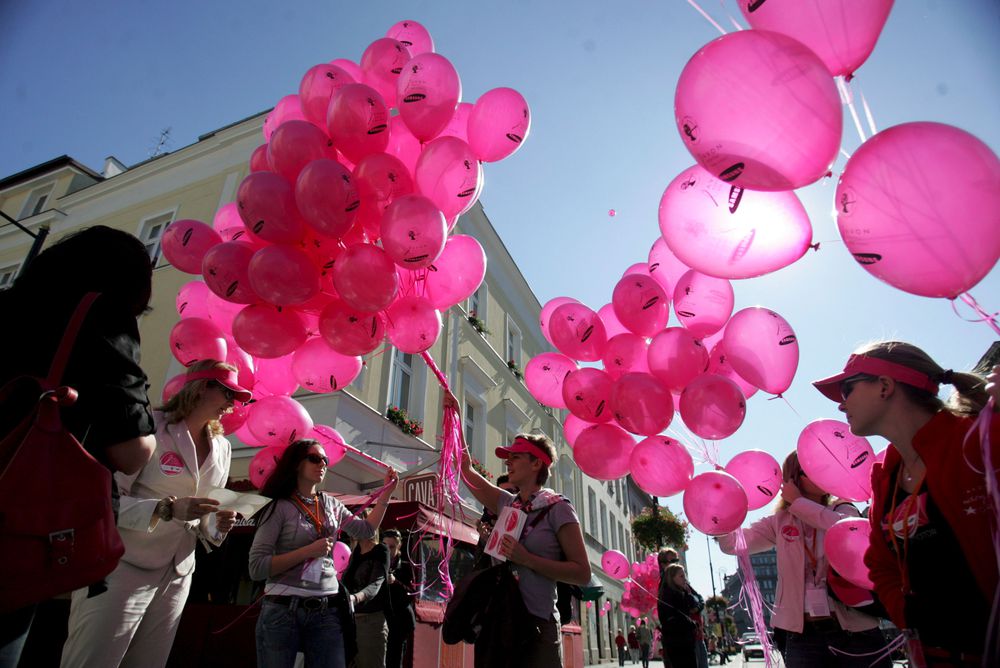The mere mention of chemotherapy brings nightmares to many people with cancer.
The effectiveness of these treatments has made it widely used in the absence of any other option despite its undesirable adverse effects (it can affect the sexual, emotional, family and social well-being of the patient).
A study presented on Thursday at the 43rd Breast Cancer Symposium in San Antonio (Texas, USA) can rid approximately 20% of women with this type of disease from this therapy, says Emilio Alba, from the Spanish Group for the Breast Cancer Research (Geicam), which has participated in the work together with research centers in the United States, Canada and France.
It has been 25 or 30 years since chemotherapy began in women over 50 who underwent surgery with between one and three nodes affected to prevent relapse.
This medication was combined with another specific for the type of tumor (hormones in this case).
It has now been seen that survival does not decrease if chemo is removed.
"There are more than 5,000 women every year in Spain alone", explains the oncologist happy to lead a work "which has shown that the same can be obtained, with less", because it is about stopping giving a drug that had "a high cost for the patient and, secondly, for the system ”.
Breast cancer is the third in cases in Spain (33,000 a year), behind colorectal (44,000) and prostate (35,000), and the first in women, according to the Spanish Society of Medical Oncology.
Although you really should not talk about breast cancer in general.
Being one of the most frequent tumors, it has also been one of the most studied, and it has been broadly subdivided into three groups, each with multiple subdivisions.
They are those with cells with the overexpressed HER2 receptor (around 25%), those with hormone receptors (65%) and the rest, the most difficult to treat, fortunately a minority (less than 15% of the total), which do not they have none of those cellular characteristics (that's why they are called triple negatives), according to the Spanish Association Against Cancer.
These differences determine the treatment, since specific drugs have been developed for each of these receptors.
But that differentiation, which led more than two decades ago to the development of what has been considered the first personalized treatment in breast cancer, trastuzumab aimed at patients with HER receptor overexpression, came after the pattern of treating with was established. chemo after surgery, explains Alba.
More than a quarter of a century later, a trial, the Rxponder, the results of which are still pending publication - the article is expected for the first quarter of 2021, says Alba - will allow the protocol to be changed.
The study has taken into account the most advanced studies on cancer aggressiveness, the analysis of 21 genes using Oncotype technology.
Candidates for the study were those who scored less than 25 on the system's assessment scale, which ranges from 0 to 100.
At work, 5,015 women have been studied, of which 792 were Spanish, and half had chemo withdrawn;
the other half received the traditional treatment.
"Five-year survival, which is how the effect of treatments in oncology is measured, was the same in both groups," says Alba, "close to 90%."
"We have used our own resources to finance this study because we consider that its relevance for these patients justified it," says Miguel Martín, president of Geicam.
“In addition, that a group of patients can avoid adjuvant chemotherapy [after surgery] is particularly important in an age like today, marked by the COVID-19 pandemic, in which to reduce both visits to hospitals and immunosuppressive treatment is essential ”, he says.
In this case, women with the type of cancer susceptible to hormones, one of the three groups of breast cancer, have been tested, but there are already projects to test those with HER receptors, says Alba, who is confident that chemotherapy traditional gradually give way to less aggressive forms.

